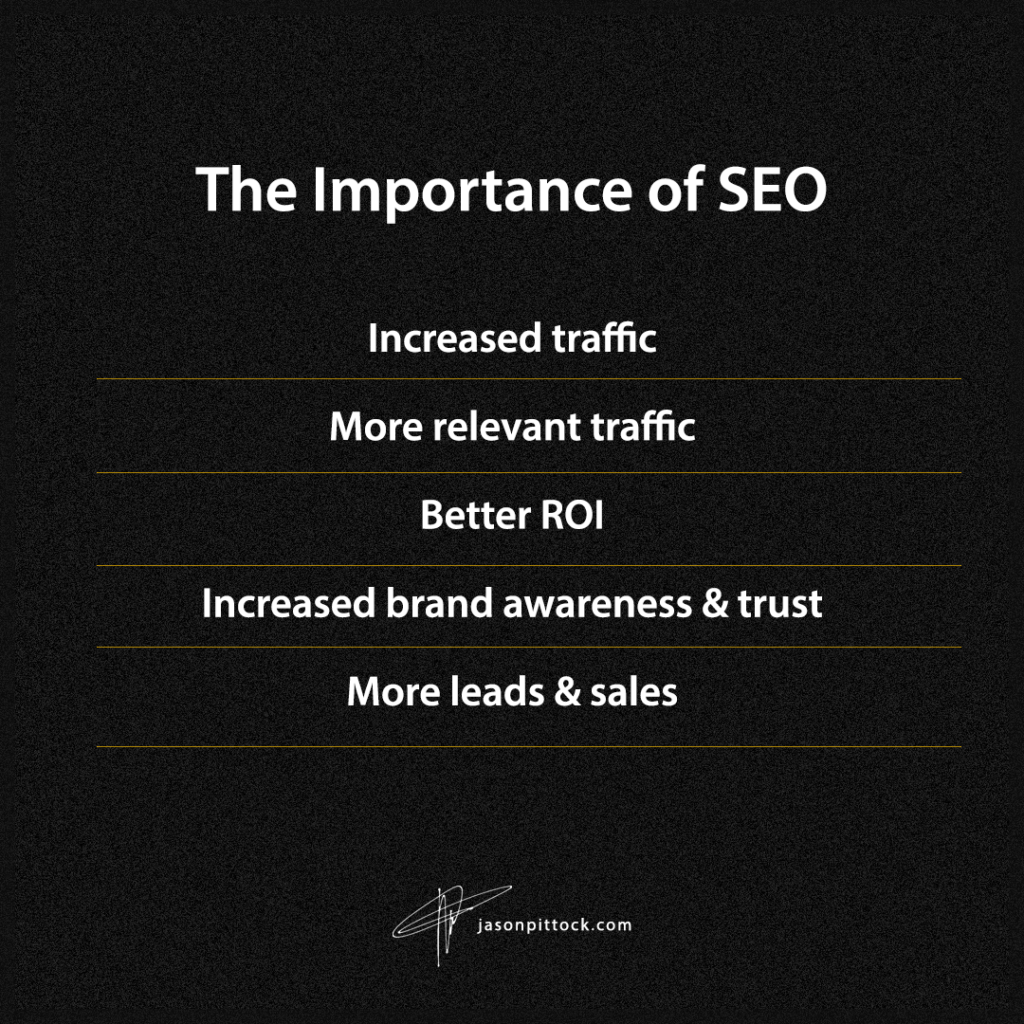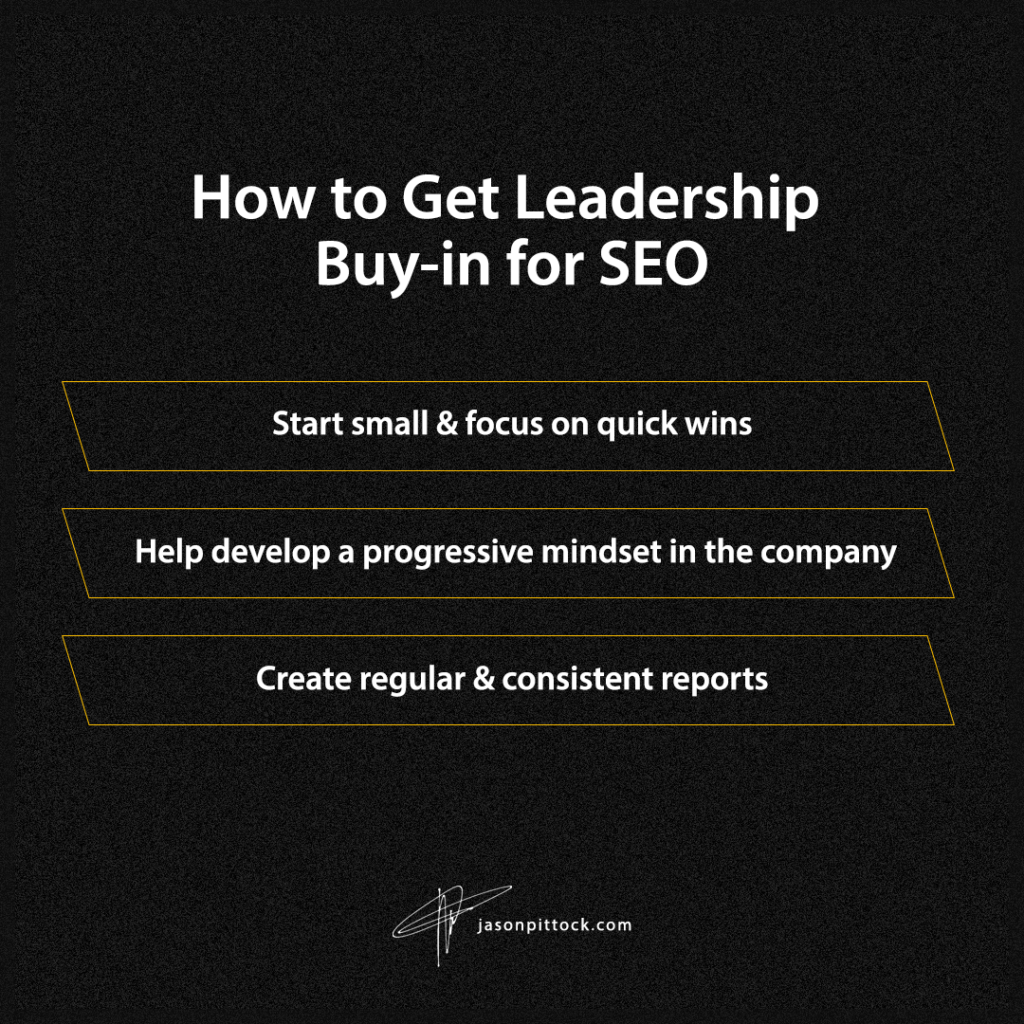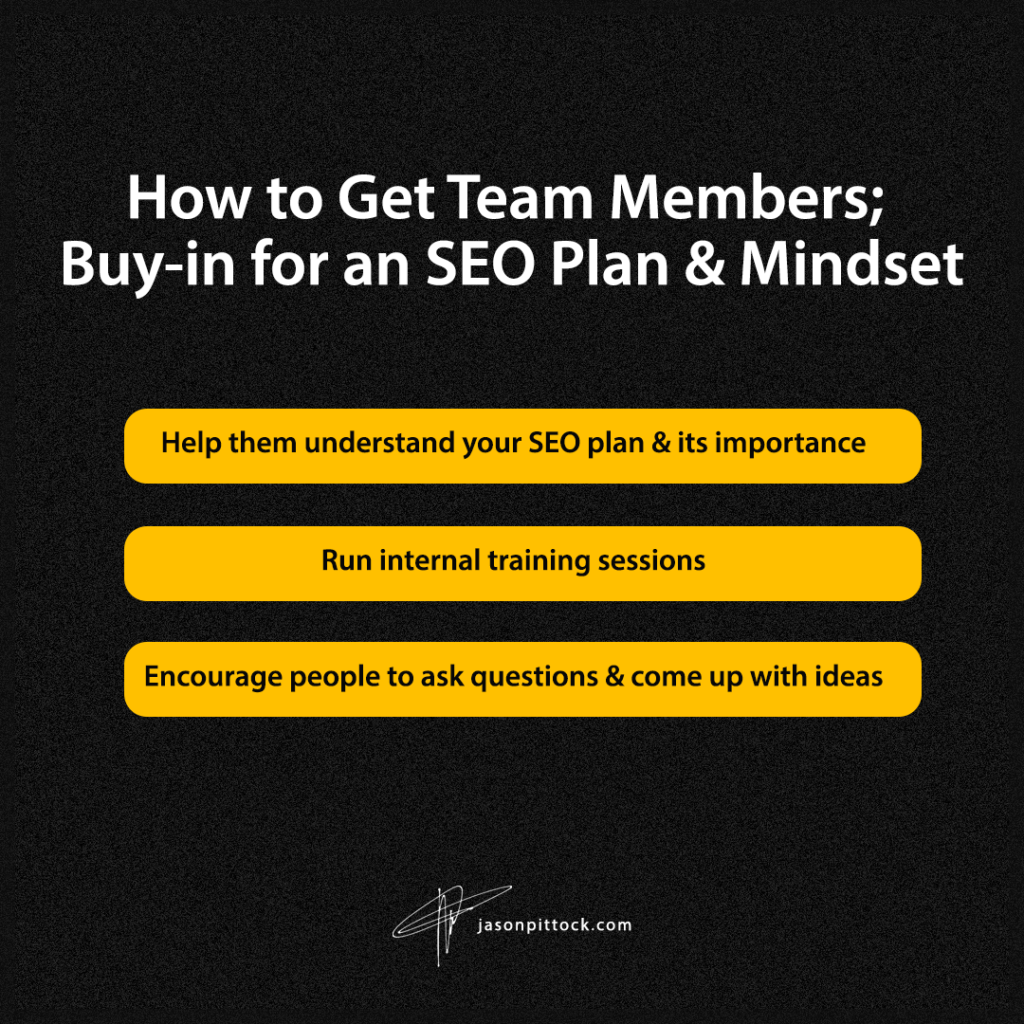
Search Engine Optimization (SEO) is far from what it used to be a decade ago. Back in 2011/ 2012 you could just grab some keywords, slap them on a website, and get yourself on the first Search Engine Results Page relatively quickly, the game has now dramatically shifted. Today, SEO is more than "just" keywords -- it is a lot more. And knowing how to make an SEO plan part of your company's culture and business strategy lies at the very foundation of successful Search Engine Optimization.
In this article, I will take a closer look at why SEO matters and how to get leadership and team buy-in on the SEO plan, so you can maximize your efficiency and drive better results.
Let's dive right in!
68% of all online experiences begin on a search engine and organic traffic makes for more than 53% of all internet traffic.
What's even better about Search Engine Optimization is that it yields consistent ROI. Data is disparate here, with companies reporting between SEO Return on Investment between 275% and 450%. SEO has a sliding investment scale but in favour of the entrepreneur, that is initially set up and execution is an investment, once the strategies are in place, SEO becomes highly efficient for bringing qualified traffic into your funnels.
In short, here are some of the best reasons to invest in SEO (and why it's so important too):


The key to developing a steady, sturdy, and efficient SEO plan is not the plan itself. That's the easy part. The "secret sauce" to companies that make SEO one of their main drivers to success is shifting the entire organization's mindset to an SEO-inspired one.
One of the first steps you should make in this direction is getting leadership buy-in. Because if the key stakeholders of a company aren't on board with an idea, it's very unlikely that anyone else in the organization will be.
Here are a few ideas on how to get leadership buy-in for your SEO plan:
Focusing on small, achievable goals is a great way to get leadership buy-in for any type of initiative. And it's especially important when you're trying to implement a new way of doing things, like an SEO strategy. One reason this approach is so effective is that it allows you to show -- rather than tell -- leaders just how SEO works and what an impact it can have on the overall business strategy.
An example of doing this is, by showing content attribution metrics using Google Search Console and data studio. As more content is created and curated the exposure that this has to relevant audiences and potential revenue opportunities.
Communicate the value of SEO in business terms (audience engagement, traffic, leads, conversions, revenue) Educate yourself and your team first.
Create internal content that supports the SEO plan and develop a relationship with stakeholders so they understand SEO impact vs input.
One of the most important things you can do to get leadership buy-in for your SEO plan is regular, consistent reporting. This will help show stakeholders just how well the plan is working and what kind of impact it's having on the bottom line.
To get started, develop a reporting template that includes key metrics such as organic traffic, leads, conversions, and revenue. Then, make sure to report on a regular basis (monthly or quarterly, depending on your business). This will help ensure that everyone is up-to-date on the SEO plan, the latest results, and the progress.

Once you have leadership buy-in for an SEO plan, also make sure to get team members' buy-in. Because, at the end of the day, it's the team that will be responsible for executing the plan and making it a success.
Here are a few ways how to get team members' buy-in for your SEO plan:
This might seem obvious, but it's important to make sure that everyone on the team understands just how important an SEO plan is for the business. One way to do this is by sharing the results of your regular reporting with the team and helping connect the dots between SEO and business goals. Align SEO impact with the business strategy by using data to show results.
Sure, Mary in Accounting may not have a natural interest in SEO. Nor would Jack in Development. But when put correctly, SEO training can drive more than just SEO knowledge per se. It can also help build general awareness of its importance across all departments in an organization. This especially important if there is a disconnect within your organization between IT (web development), Marketing (Paid performance and Content) and Sales, for example. It is very important that everyone is onboard with high level goals of the SEO plan and making sure that any questions or doubts about enablement are handled. Lack of communication and training will do a lot of damage to a remote, disconnected team thats wanting to make SEO part of their business strategy.
SEO training doesn't need to be long or complex. Even a 1-hour session on the basics of SEO can make a big difference. Not only will this help ensure everyone is on the same page, but it will also show leadership that you're serious about making SEO a priority in the company, and enabling others to chip in to make things move forward.
Make sure people feel comfortable asking questions about SEO. This will help ensure that everyone is on the same page and can work together to make the SEO plan a success.
One way to encourage people to ask questions is by setting up an "SEO Q&A" session on a regular basis (monthly or quarterly, depending on your availability), and inviting everyone in the company to participate. This will give people a chance to ask questions, get clarification on anything they're unsure about, and learn more about SEO in general.
Finally, encourage people to come up with ideas and debate them. This will help ensure that everyone is thinking about SEO and how it can be used to improve the business.
One way to do this is by using the aforementioned "SEO Q&A" for quick brainstorming sessions too. This will help everyone put their creativity and knowledge to work, so you can all come up with the best SEO ideas. Product, Engineering, Customer Care, and Salespeople will be your greatest help when you want to make sure you devise an SEO plan that covers both your customers and your team's needs.
Getting the entire organization to "think" SEO isn't a small feat. It can be challenging -- but it can also be extremely rewarding because it will help you create an SEO plan and strategy that really speaks to your audience, your team, and the problems your business is trying to solve.